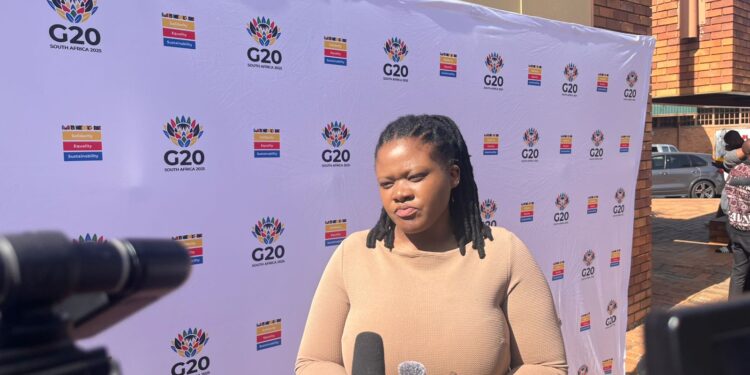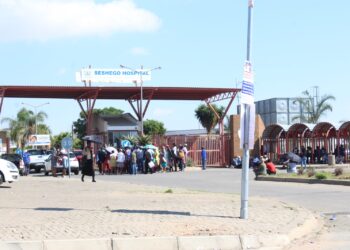By Tumelo Matlala
Deputy Minister in The Presidency, Ms. Nonceba Mhlauli, delivered a keynote address at a public lecture hosted by the Tshwane University of Technology (TUT) as part of the G20 Outreach Programme. The event took place at TUT’s Faculty of Humanities in Pretoria on Friday 16 May, drawing a distinguished audience of university stakeholders, students of Public Management and Journalism, and government representatives.
The lecture formed part of South Africa’s build-up towards its historic G20 presidency in 2025—marking the first time the African continent will host the global forum. The 2025 theme, “Solidarity, Equality and Sustainability,” underscores the nation’s commitment to advancing African development and leading global action on critical issues such as food security, climate change, trade, and inclusive economic growth.
TUT is currently leading the Academic Track of the G20, which focuses on six key thematic areas, particularly addressing financial and economic barriers to women’s empowerment.
In her opening remarks, Dr. Jeanette Ramollo, Assistant Dean of the Faculty of Humanities, extended a heartfelt welcome to the Deputy Minister.
“On behalf of Tshwane University of Technology, particularly the esteemed Faculty of Humanities, it is my pleasure and privilege to welcome our Honourable Deputy Minister, Ms. Nonceba Mhlauli,” she said.
Dr. Ramollo highlighted the importance of South Africa’s G20 leadership, noting that the global forum provides a platform to align international initiatives with local priorities.
“Removing the financial and economic barriers that hinder women’s empowerment is a central focus,” she said, quoting Audre Lorde: ‘I am not free while any woman is unfree, even when her shackles are very different from my own.’
Representing the Government Communication and Information System (GCIS), Acting Deputy Director-General Mr. Sandile Nene emphasised the department’s role in upholding journalism and ensuring that South Africans are kept informed about government activities.
“Our core function is to preserve and protect journalism,” he said. “GCIS ensures citizens are fully aware of everything taking place in government.”
In her keynote lecture, Deputy Minister Mhlauli stressed the importance of the G20 not just as a gathering of world leaders, but as a “living case study of multilateral cooperation, economic diplomacy, and governance in action.”
She urged students to seize the moment and actively engage with South Africa’s G20 presidency.
“For aspiring public servants and policy professionals, the G20 provides a lens through which to understand the real-world implications of international policy decisions,” she said. “This is a unique opportunity to witness global governance at work and to reflect on how your own leadership might contribute to building a more just and sustainable world.”
Mhlauli concluded by encouraging students to stay informed and involved, stating that their interest in the G20 was both timely and essential for shaping the country’s and the continent’s future.
















